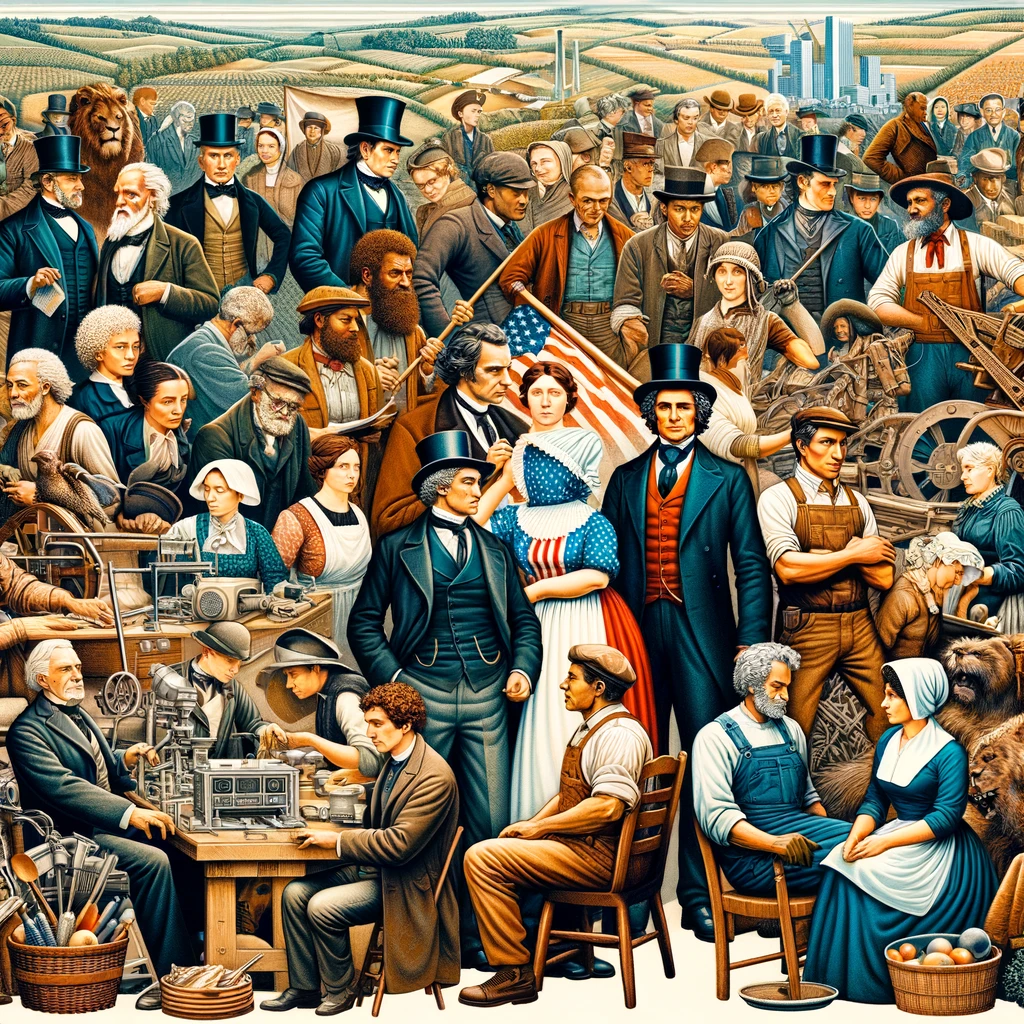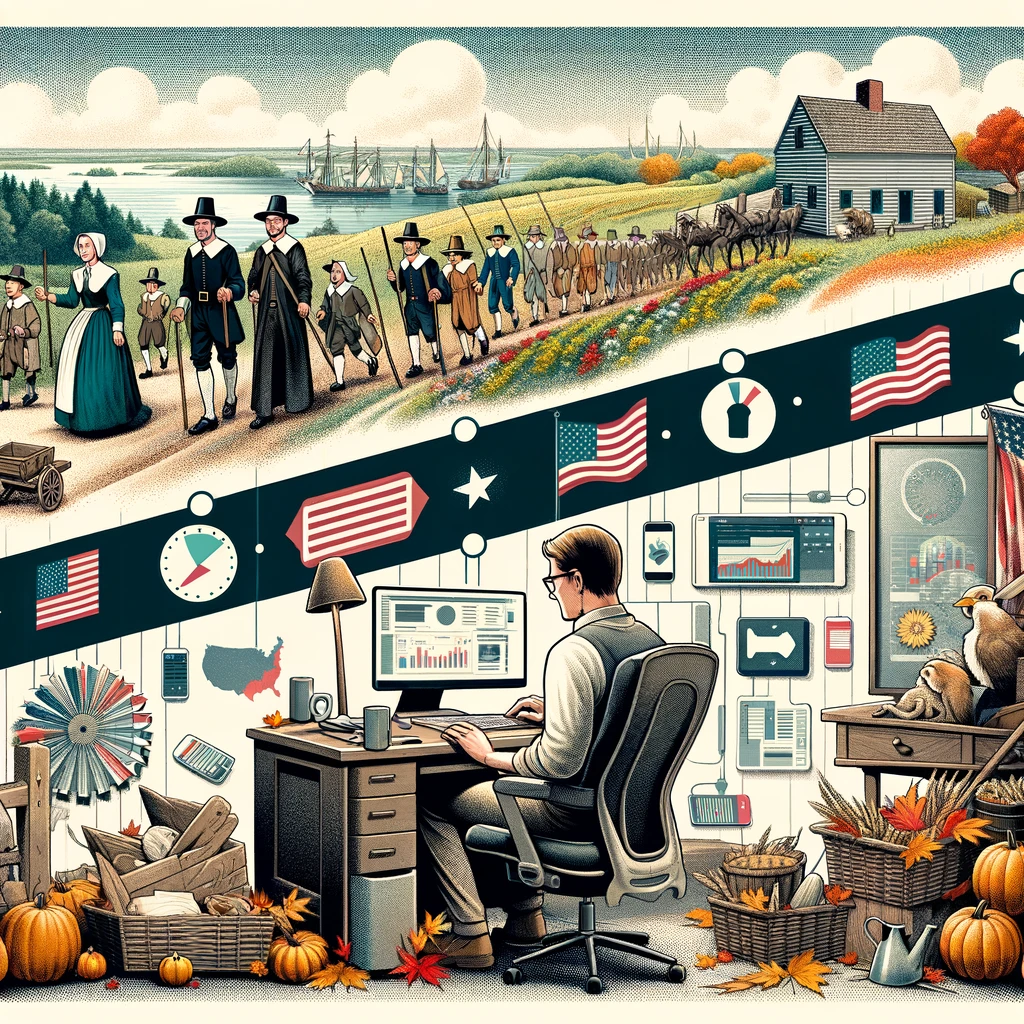
The Protestant work ethic, a concept deeply ingrained in American culture and politics, profoundly influences the nation’s collective ethos and governs its societal norms and economic practices. Originating from the Protestant Reformation led by figures such as Martin Luther and John Calvin, the Protestant work ethic emphasizes diligence, frugality, and industriousness as means to a moral end. These values were seen not just as spiritually desirable but as necessary traits for personal salvation and evidence of divine favor. As Protestantism spread, these ideas deeply embedded themselves into the social fabric of communities and, eventually, nations influenced by Protestant teachings.

In America, the Protestant work ethic found a particularly fertile ground. The early settlers, many of whom were fleeing religious persecution in Europe, brought with them a strong belief in the virtues of hard work and the moral degradation associated with idleness. This ethic resonated with the frontier spirit of early American society, where survival and success were directly tied to personal effort and a strong commitment to community welfare. The ethos became a cornerstone of American identity, embodying the “American Dream” where hard work and perseverance are rewarded with personal success and upward social mobility.
Politically, the Protestant work ethic has played a significant role in shaping American attitudes towards governance, economic policy, and social welfare. On one hand, it has fueled a staunch advocacy for free-market capitalism, underpinned by the belief that the market functions best when individuals are left to their own devices to work and trade freely. Politicians and policymakers advocating for minimal government intervention in business and lower taxes often cite the motivational impacts of allowing individuals to reap the full rewards of their labor.
On the other hand, the Protestant work ethic has influenced debates on social welfare and public assistance programs. Critics of expansive government aid programs argue that such programs discourage work and self-reliance, principles central to the Protestant ethic. They posit that aid should be temporary and not undermine an individual’s incentive to work, reflecting the belief that labor is not only economically essential but also morally virtuous.
However, the integration of the Protestant work ethic into American life is not without its critics. Some argue that it has contributed to a culture that values work over personal well-being and social bonds. This can lead to workaholism and the stigmatization of those unable to work, whether due to disability, economic conditions, or structural inequalities. Furthermore, the ethic’s emphasis on individual success may detract from community-based approaches to support and mutual aid, framing socioeconomic success as a purely individual endeavor rather than a collective effort.
In recent years, the relevance of the Protestant work ethic in politics has been challenged by changing societal attitudes and economic realities. The rise of the gig economy, automation, and a growing recognition of work-life balance issues call for a reevaluation of what it means to be a productive member of society. Younger generations, facing economic uncertainties and witnessing the limitations of the ethic in addressing modern challenges such as climate change and global inequality, are increasingly skeptical of its applicability.
Nevertheless, the Protestant work ethic continues to influence American politics, particularly in discussions surrounding economic policy and social welfare. It serves as a lens through which many Americans view not only work and productivity but also morality and civic responsibility. As America grapples with new social and economic challenges, the endurance of this ethic will likely be tested, but its impact on the political and cultural landscape is undeniable.
In summary, the Protestant work ethic remains a potent, albeit contested, force in American society. Its implications for politics are profound, shaping policies and public attitudes towards work, welfare, and economic freedom. As the United States continues to evolve, the interaction between this age-old ethic and new societal values will undoubtedly play a crucial role in defining the future of American politics and society.
Illustration depicting the essence of the Protestant work ethic in American politics and society. The image showcases a diverse group of people, engaged in various forms of work across different eras, set against a backdrop that blends historical and contemporary American landscapes. This visually represents the ongoing influence of these work ethics across generations.
Illustration showing the evolution of the Protestant work ethic in America, from the early settlers and pilgrims to a modern individual working in a digital home office, complete with symbols of America.